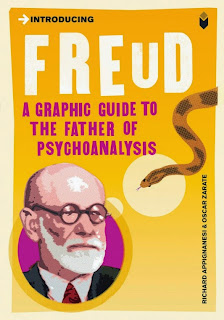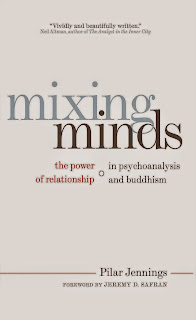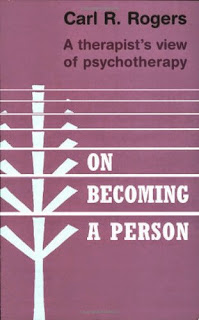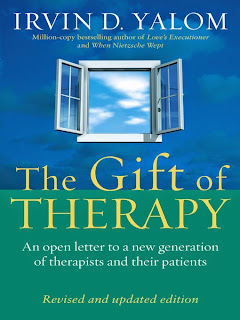There's no better time than winter to cozy up with a book or twelve. Here's what we've been reading on our flu days and snow days this season.
(See also our Freudian Gifts Guide)
#1 The Man Who Mistook His Wife for a Hat
In his most extraordinary book, Oliver Sacks recounts the stories of patients lost in the bizarre, apparently inescapable world of neurological disorders. These are case studies of people who have lost their memories and with them the greater part of their pasts; who are no longer able to recognize people or common objects; whose limbs have become alien; who are afflicted and yet are gifted with uncanny artistic or mathematical talents. In Dr Sacks’s splendid and sympathetic telling, each tale is a unique and deeply human study of life struggling against incredible adversity.
#2 Love's Executioner and Other Tales of Psychotherapy
In this engrossing book, Irvin Yalom gives detailed and deeply affecting accounts of his work with these and seven other patients. Deep down, all of them were suffering from the basic human anxieties - isolation, fear of death or freedom, a sense of the meaninglessness of life - that none of us can escape completely. And yet, as the case histories make touchingly clear, it is only by facing such anxieties head on that we can hope to come to terms with them and develop. Throughout, Dr Jalom remains refreshingly frank about his own errors and prejudices; his book provides a rare glimpse into the consulting room of a master therapist.
Ebook Preview/Excerpts ~ Love's Executioner and Other Tales of Psychotherapy
#3 On Kindness
What is kindness? Does it make us happier? And does it have a place in a selfish world?
Psychoanalyst Adam Phillips and historian Barbara Taylor present an elegant, thoughtful and concise analysis of kindness in history, in life and in the modern world. Suggesting that acts of kindness occur when we are at our most open and honest, they ask why it is that our faith in kindness has been shaken - and why we are all too ready to believe that antagonism has taken its place.
Ebook Preview/Excerpts ~ On Kindness
#4 The Art of Loving
Since it was first published " The Art of Loving" has become a classic, inspiring thousands of people with its clarity and power. Erich Fromm, the renowned psychoanalyst, sees love as the ultimate need and desire of all human beings. In this book, he discusses every aspect of the subject: romantic love, the love of parents for children, brotherly love, erotic love, self-love and the love of God or the divine. He looks at the theory of love as it appears throughout the cultures of the world and at the practice, how we show or fail to show love to one another. Love is an art, which we need to develop and practice in order to find true commitment. We need to find it, individually and as a society as a whole.
#4 Quiet: The Power of Introverts in a World That Can't Stop Talking
In Quiet, Susan Cain argues that we dramatically undervalue introverts and shows how much we lose in doing so. She charts the rise of the Extrovert Ideal throughout the twentieth century and explores how deeply it has come to permeate our culture. She also introduces us to successful introverts—from a witty, high-octane public speaker who recharges in solitude after his talks, to a record-breaking salesman who quietly taps into the power of questions. Passionately argued, superbly researched, and filled with indelible stories of real people, Quiet has the power to permanently change how we see introverts and, equally important, how they see themselves.
Ebook Preview/Excerpts ~ Quiet: The Power of Introverts in a World That Can't Stop Talking
#5 Daily Rituals
Anthony Trollope wrote three thousand words every morning before heading off to his job at the Post Office. Toulouse-Lautrec did his best work at night, sometimes even setting up his easel in brothels, and George Gershwin composed at the piano in pyjamas and a bathrobe. Freud worked sixteen hours a day, but Gertrude Stein could never write for more than thirty minutes, and F. Scott Fitzgerald wrote in gin-fuelled bursts - he believed alcohol was essential to his creative process.
From Marx to Murakami and Beethoven to Bacon, Daily Rituals examines the working routines of more than a hundred and sixty of the greatest philosophers, writers, composers and artists ever to have lived. Filled with fascinating insights on the mechanics of genius and entertaining stories of the personalities behind it, Daily Rituals is irresistibly addictive, and utterly inspiring.
Ebook Preview/Excerpts ~ Daily Rituals: How Artists Work
#6 My Age of Anxiety: Fear, Hope, Dread, and the Search for Peace of Mind
Drawing on his own long-standing battle with anxiety, Stossel presents an astonishing history, at once intimate and authoritative, of the efforts to understand the condition from medical, cultural, philosophical, and experiential perspectives. He ranges from the earliest medical reports of Galen and Hippocrates, through later observations by Robert Burton and Søren Kierkegaard, to the investigations by great nineteenth-century scientists, such as Charles Darwin, William James, and Sigmund Freud, as they began to explore its sources and causes, to the latest research by neuroscientists and geneticists. Stossel reports on famous individuals who struggled with anxiety, as well as on the afflicted generations of his own family. His portrait of anxiety reveals not only the emotion’s myriad manifestations and the anguish anxiety produces but also the countless psychotherapies, medications, and other (often outlandish) treatments that have been developed to counteract it. Stossel vividly depicts anxiety’s human toll—its crippling impact, its devastating power to paralyze—while at the same time exploring how those who suffer from it find ways to manage and control it.
Ebook Preview/Excerpts ~ My Age of Anxiety
#7 Introducing Freud: A Graphic Guide
Freud revolutionized the way we think about ourselves. His psychoanalytic terms such as Id, Ego, libido, neurosis and Oedipus Complex have become a part of our everyday vocabulary. But do we know what they really mean? “Introducing Freud” successfully demystifies the facts of Freud’s discovery of psychoanalysis. Irreverent and witty but never trivial, the book tells the story of Freud’s life and ideas from his upbringing in 19th-century Vienna, his early medical career and his encounter with cocaine, to the gradual evolution of his theories on the unconscious, dreams and sexuality. With its combination of brilliantly clever artwork and incisive text, this book has achieved international success as one of the most entertaining and informative introductions to the father of psychoanalysis.
#8 Reading Freud: A Chronological Exploration of Freud's Writings
Reading Freud provides an accessible outline of the whole of Freud's work from Studies in Hysteria through to An Outline of Psycho-Analysis. It succeeds in expressing even the most complex of Freud's theories in clear and simple language whilst avoiding over-simplification.
Each chapter concentrates on an individual text and includes valuable background information, relevant biographical and historical details, descriptions of Post-Freudian developments and a chronology of Freud's concepts. By putting each text into the context of Freud's life and work as a whole, Jean-Michel Quinodoz manages to produce an overview which is chronological, correlative and interactive. Texts discussed include:
The clear presentation, with regular summaries of the ideas raised, encourages the reader to fully engage with the texts presented and gain a thorough understanding of each text in the context of its background and impact on the development of psychoanalysis.
Drawing on his extensive experience as a clinician and a teacher of psychoanalysis, Jean-Michel Quinodoz has produced a uniquely comprehensive presentation of Freud's work which will be of great value to anyone studying Freud and Psychoanalysis.
#9 The Essentials Of Psycho-Analysis
The Essentials of Psycho-analysis is the definitive collection of Sigmund Freud's writing. It covers the themes that Freud explored in his work from the meaning of dreams and the concept of the unconscious, instinctual and sexual life to the structure of the personality. Beautifully written and endlessly fascinating, the pieces collected here are the perfect guide to the principle concepts of psycho-analysis.
#10 A Critical Dictionary of Psychoanalysis
Charles Rycroft's 'Critical Dictionary of Psychoanalysis' is an established reference work providing clear definitions and critical discussions of the technical terms used in psychoanalysis. An accurate and witty guide to the meaning of psychoanalytic terms ... [it] also explains the various controversies which have disfigured the psychoanalytic movement and which are such a puzzle to those outside it. For anyone concerned with psychoanalysis and its offshoots this is an indispensable book.
#11 Lacan For Beginners
Jacques Lacan is probably the most influential psychoanalyst since Freud (of the roughly 20,000 psychoanalysts in the world, about half are ‘Lacanians’) yet most people know nothing about him. The 10,000 analysts who use Lacan’s ideas, work mostly in France, Spain, Italy, and South America. To the rest of the world, including England and America, Lacan is a genius-in-waiting, due to be ‘discovered’ any day now.
Lacan For Beginners by Philip Hill addresses that question with great clarity without oversimplifying Lacan’s ideas. Hill introduces the reader to Lacan’s theories and their relation to clinical practice in twelve elegantly structured chapters, designed around tantalizing questions that serve to clarify Lacan’s ideas.
#12 Freud, Adler, and Jung: Discovering the Mind
Kaufmann traces the intellectual tradition that culminated in Freud's blending of analytic scientific thinking with humanistic insight to create "a poetic science of the mind." He argues that despite Freud's great achievement and celebrity, his work and person have often been misunderstood and unfairly maligned, the victim of poor translations and hostile critics. Kaufmann dispels some of the myths that have surrounded Freud and damaged his reputation. He takes pains to show how undogmatic, how open to discussion, and how modest Freud actually was.
Kaufmann endeavors to defend Freud against the attacks of his two most prominent apostate disciples, Alfred Adler and Carl Gustav Jung. Adler is revealed as having been jealous, hostile, and an ingrate, a muddled thinker and unskilled writer, and remarkably lacking in self-understanding. Jung emerges in Kaufmann's depiction as an unattractive, petty, and envious human being, an anti-Semite, an obscure and obscurantist thinker, and, like Adler, lacking insight into himself. Freud, on the contrary, is argued to have displayed great nobility and great insight into himself and his wayward disciples in the course of their famous fallings-out.
#13 A Dangerous Method: The Story of Jung, Freud, and Sabina Spielrein
In 1907, Sigmund Freud and Carl Jung began what promised to be both a momentous collaboration and the deepest friendship of each man’s life. Six years later they were bitter antagonists, locked in a savage struggle that was as much personal and emotional as it was theoretical and professional. Between them stood a young woman named Sabina Spielrein, who had been both patient and lover to Jung and colleague and confidante to Freud before going on to become an innovative psychoanalyst herself.
With the narrative power and emotional impact of great tragedy, A Dangerous Method is impossible to put down.
#14 The Red Book
When Carl Jung embarked on an extended self-exploration he called his “confrontation with the unconscious,” the heart of it was The Red Book, a large, illuminated volume he created between 1914 and 1930. Here he developed his principle theories—of the archetypes, the collective unconscious, and the process of individuation—that transformed psychotherapy from a practice concerned with treatment of the sick into a means for higher development of the personality.
While Jung considered The Red Book to be his most important work, only a handful of people have ever seen it. Now, in a complete facsimile and translation, it is available to scholars and the general public. It is an astonishing example of calligraphy and art on a par with The Book of Kells and the illuminated manuscripts of William Blake. This publication of The Red Book is a watershed that will cast new light on the making of modern psychology.
#15 Psychological Types
Psychological Types is one of Jung's most important and most famous works. First published by Routledge (Kegan Paul) in the early 1920s it appeared after Jung's so-called fallow period, during which he published little, and it is perhaps the first significant book to appear after his own confrontation with the unconscious. It is the book that introduced the world to the terms 'extravert' and 'introvert'.
Though very much associated with the unconscious, in Psychological Types Jung shows himself to be a supreme theorist of the conscious. In putting forward his system of psychological types Jung provides a means for understanding ourselves and the world around us: our different patterns of behaviour, our relationships, marriage, national and international conflict, organizational functioning.
Appearing in paperback for the first time this central volume from Jung's Collected Works will be essential to anyone requiring a proper understanding of Jung's psychology.
#15 Mixing Minds: The Power of Relationship in Psychoanalysis and Buddhism
“We cannot find ourselves, or be ourselves, alone.”—from Mixing Minds
Mixing Minds explores the interpersonal relationships between psychoanalysts and their patients, and Buddhist teachers and their students. Through the author’s own personal journey in both traditions, she sheds light on how these contrasting approaches to wellness affect our most intimate relationships. These dynamic relationships provide us with keen insight into the emotional ups and downs of our lives—from fear and anxiety to love, compassion, and equanimity. Mixing Minds delves into the most intimate of relationships and shows us how these relationships are the key to the realization of our true selves.
#16 The Zen Impulse and the Psychoanalytic Encounter
Although psychoanalysis and Zen Buddhism derive from theoretical and philosophical assumptions worlds apart, both experientially-based traditions share at their heart a desire for the understanding, development, and growth of the human experience. Paul Cooper utilizes detailed clinical vignettes to contextualize the implications of Zen Buddhism in the therapeutic setting to demonstrate how its practices and beliefs inform, relate to, and enhance transformative psychoanalytic practice.
The basic concepts of Zen, such as the identity of the relative and the absolute and the foundational principles of emptiness and dependent-arising, are given special attention as they relate to the psychoanalytic concepts of the unconscious and its processes, transference and countertransference, formulations of self, and more. In addition, through an analysis of apophasis, a unique style of discourse that serves as a basic structure for mystical languages, he provides insight into the structure of the seemingly irrational Zen koan in order to demonstrate its function as a pedagogical and psychological tool.
#17 On Becoming a Person
In this book one of America's most distinguished psychologists describes his experiences in helping people to discover the path to personal growth through an understanding of their own limitations and potential. What is personal growth? Under what conditions is it possible? How can one person help another? What is creativity, and how can it be fostered? These are some of the issues raised, which challenge many concepts of traditional psychology.
Contemporary psychology derives largely from the experimental laboratory, or from Freudian theory. It is preoccupied with minute aspects of animal and human behaviour, or with the mentally ill. But there are rebels, of whom the author counts himself as one, along with Gordon Allport, Abraham Maslow and Rollo May, who feel that psychology and psychiatry should be aiming higher, and be more concerned with growth and potentiality in man. The interest of such a psychology is in the production of harmoniously mature individuals, given that we all have qualities and possibilities infinitely capable of development. Successful development makes us more flexible in relationships, more creative, and less open to suggestion and control.
This book, philosophical and provocative, summarizes Dr Rogers' experience.Non-technical in its language, it is not only for psychologists and psychiatrists, but for teachers and counsellors, religious and social workers, labour-management specialists and anyone interested in 'becoming'.
Ebook Preview/Excerpts ~ On Becoming a Person
#18 The Gift Of Therapy: An open letter to a new generation of therapists and their patients
The Gift Of Therapy is the culmination of master psychiatrist Dr Irvin Yalom's thirty-five years' work as a therapist, illustrating through real case studies how patients and therapists alike can get the most out of therapy. Presented as eighty-five 'tips' for 'beginner therapists', Yalom shares his own fresh approach and the insights he has gained while treating his patients. Personal, and sometimes provocative, Yalom makes some unorthodox suggestions, including: Let the patient matter to you; Acknowledge your errors; Create a new therapy for each patient; Make home visits; (Almost) never make decisions for a patient; and Freud was not always wrong.
This is an entertaining, informative and insightful read for both beginners and more experienced therapists, patients, students and everyone with an interest in the subject.
Ebook Preview/Excerpts ~ The Gift Of Therapy
#19 Introducing Graphic Guide Box Set - Know Thyself
A box set containing three enlightening, comic-book style Introducing Graphic Guides (Consciousness, Psychoanalysis and Psychology) to help unlock the greatest mystery of all time - ourselves.
What have zombies, Chinese Rooms, ghosts in machines and Schrodinger's cat go to do with consciousness? Modern science may have split the atom and solved the mystery of life, but it has yet to explain the source of conscious feelings. In Introducing Consciousness, David Papineau and Howard Selina provide a brilliant, comprehensive guide to the current state of consciousness studies
How do psychoanalysts conceptualize the mind? Why was Freud so interested in sex? Is psychoanalysis a science? How does analysis work? In answering these questions, Introducing Psychoanalysis offers new insights into the nature of psychoanalytic theory and original ways of describing therapeutic practice. The theory comes alive through Oscar Zarate's insightful and daring illustrations, enlightening the text.
What is psychology? When did it begin? Where did it come from? How does psychology compare with psychiatry and psychotherapy? Is it scientific? In Introducing Psychology, Nigel Benson skilfully explains the main schools of thought and the sections within psychology, including Introspection, Bio-psychology, Psychoanalysis, Behaviourism, Comparative (Animal) Psychology, Cognitive Approaches, Social Psychology, Developmental Psychology and Humanism. It is a fascinating guide to the whole subject of psychology an ideal introduction for anyone interested in why we do what we do and think what we think.
#20 Atkinson & Hilgard's Introduction to Psychology
Now in its 16th edition, Atkinson & Hilgard's Introduction to Psychology has been fully revised and updated to reflect all recent research developments, theories and ideas, whilst also retaining all of the qualities which have established it as a leading undergraduate psychology textbook over the past five decades, including its highly accessible and engaging student-centred approach. The established author team of Susan Nolen-Hoeksema, Barbara Fredrickson and Geoffrey R. Loftus has been joined by Christel Lutz (University of Utrecht), who has helped to add a fresh European influence, and thereby create a truly international introductory textbook. The 'Cutting Edge Research' box features and 'Seeing Both Sides' essays which conclude each chapter have been fully updated and replaced throughout, using contributions from a range of experts across the globe, and really help to bring the text to life for students.
#21 Madness and Civilization: A History of Insanity in the Age of Reason
Perhaps the French philosopher's masterpiece, which is concerned with an extraordinary question: What does it mean to be mad?
Foucault's first major book, it is an examination of the evolving meaning of madness in European culture, law, politics, philosophy and medicine from the Middle Ages to the end of the eighteenth century, and a critique of historical method and the idea of history. It marks a turning in Foucault's thought away from phenomenology toward structuralism: though he uses the language of phenomenology to describe an evolving experience of "the other" as mad, he attributes this evolution to the influence of specific powerful social structures.
Ebook Preview/Excerpts ~ Madness and Civilization
#22 The Redstone Inkblot Test
A modern twist on the classic inkblot personality test, this kit includes 12 beautiful inkblots to analyze and interpret. Any interpretation can be a jumping-off point for self-discovery, or maybe just a good laugh! A 32-page handbook features a full personality profile for each blot, a short history of inkblots, and tips on how to use the test. Perfect for individual use or for sharing with family and friends. This playful personality test is as amusing as it is revealing!
#23 Curiosity and Method - Ten Years of Cabinet Magazine
Since its launch in late 2000, Cabinet magazine has become a touchstone for a certain approach to understanding culture, one that shuns orthodox distinctions--high/low, serious/humorous, professional/amateur--in favor of a commitment to the idea that all objects, practices and discourses can, if read against the grain, teach us something important about the world. Its hybrid sensibility merges the visually engaging style of an arts periodical, the exuberance of a fanzine and the in-depth exploration of a scholarly journal to create a sourcebook of ideas for an international audience of readers, from artists and designers to scientists, philosophers and historians. Using essays, interviews and artist projects to present a variety of topics in language accessible to the non-specialist, Cabinet has aimed to encourage a new culture of curiosity. This anthology brings together some of the most interesting successes, and a few instructive failures, published in the first 40 issues of Cabinet, virtually all of which are sold out, along with essays specially commissioned for the volume.
#24 A Book of Surrealist Games
This delightful collection allows everyone to enjoy firsthand the provocative methods used by the artists and poets of the Surrealist school to break through conventional thought and behavior to a deeper truth. Invented and played by such artists as André Breton, Rene Magritte, and Max Ernst, these gems still produce results ranging from the hilarious to the mysterious and profound.
•






























